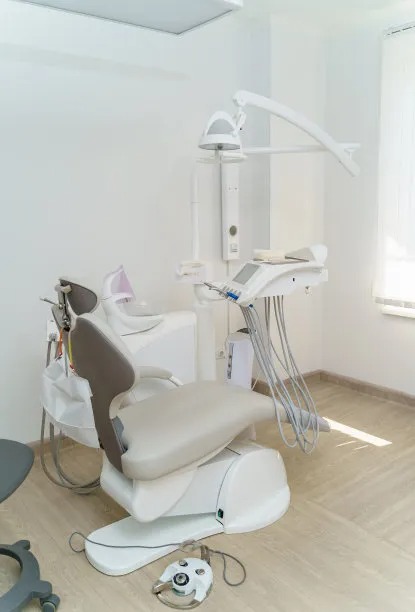The Importance of Professional Guidance When You Need to Extract a Tooth Safely and Effectively
Summary: Extracting a tooth is a delicate procedure that requires professional guidance to ensure safety and effectiveness. This article explores the importance of consulting dental professionals before undergoing tooth extraction. It discusses their expertise in assessing dental conditions, providing appropriate anesthesia, performing the procedure with precision, and offering aftercare solutions. Each of these aspects is crucial for minimizing complications and promoting a faster recovery. By understanding the necessity of professional assistance, patients can make informed decisions and safeguard their oral health.
1. Dental Professionals’ Expertise in Assessment

One of the primary reasons to seek professional guidance when considering tooth extraction is the expertise that dental professionals possess. Dentists are trained to accurately assess the condition of your teeth and gums, ensuring that a tooth extraction is necessary. They can identify underlying issues, such as infections, decay, or structural problems, that may not be immediately visible to the untrained eye.
Furthermore, dentists employ advanced diagnostic tools, including X-rays and other imaging technologies, to evaluate the tooths position and its relationship with surrounding anatomical structures. This detailed assessment allows them to plan the most effective extraction approach, reducing potential risks and complications.
In addition to diagnosing current dental issues, dental professionals also consider the patients overall health and medical history when making recommendations. Their ability to create a comprehensive treatment plan that addresses individual needs is a crucial aspect of ensuring a successful tooth extraction process.
2. Safeguarding with Appropriate Anesthesia
Another important reason to rely on professional guidance during tooth extraction is the administration of anesthesia. Dentists are qualified to evaluate the best anesthesia options based on the complexity of the procedure and the patient’s specific needs. This ensures that the extraction is performed painlessly and comfortably.
In many cases, local anesthesia is sufficient to numb the specific area around the tooth being extracted. However, for more complicated cases, such as impacted wisdom teeth, sedation or general anesthesia may be necessary. Dental professionals are trained to administer these anesthetics safely, monitoring the patients vital signs and adjusting dosages as needed throughout the procedure.
Moreover, the use of anesthesia prepared and administered by trained professionals significantly reduces the risk of complications associated with improper dosage or allergic reactions. Feeling safe and comfortable during the extraction process can greatly enhance a patients overall experience.
3. Precision During the Extraction Procedure
The technical skill and precision required for a successful tooth extraction cannot be overstated. Even though it may seem straightforward, many factors must be considered to minimize complications, such as excessive bleeding or damage to surrounding teeth and tissues. Dental professionals possess the necessary training and experience to navigate these challenges effectively.
Professional dentists use specialized instruments and techniques tailored to the individual case. Their expertise allows them to perform the extraction swiftly and efficiently, reducing the time the patient spends in discomfort. Additionally, they can predict and manage complications that may arise during the procedure, ensuring that the patient’s safety is prioritized at all times.
Furthermore, the post-extraction care plan provided by dental professionals is essential for optimal healing. They can advise on appropriate pain management and activities to avoid, which helps patients recover more quickly and comfortably.
4. Aftercare and Follow-Up Support
After a tooth extraction, proper aftercare is critical for a smooth recovery. Dental professionals offer tailored aftercare instructions based on the specifics of the procedure and the patients health needs. They provide guidance on managing swelling, pain levels, and dietary restrictions to promote healing.
Moreover, having a dentist accessible for follow-up appointments ensures that any complications, such as infection or prolonged bleeding, can be addressed promptly. Early intervention can significantly lower the risk of severe complications that may arise when a patient is left to manage recovery independently.
Additionally, dental professionals can also provide advice on how to maintain oral hygiene post-extraction, which is vital for preventing infection and facilitating faster healing. Their ongoing support fosters a sense of safety and reassurance, making the recovery process smoother and less stressful for the patient.
Summary:
Throughout the article, weve highlighted key reasons why professional guidance is vital when extracting a tooth. Dental experts bring a wealth of knowledge to the procedure, ensuring accurate assessments, safe anesthesia administration, precise execution, and effective aftercare. The patients ability to recover comfortably and safely hinges upon the support provided by these professionals, making their role indispensable in dental care.
This article is compiled by Vickong Dental and the content is for reference only.



